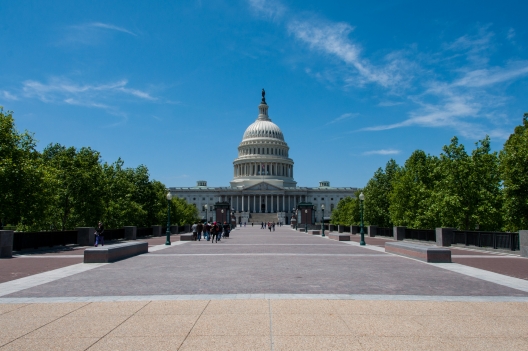 The federal government shutdown has done serious harm to the public and threatens to create even more havoc as it veers toward a once unthinkable US default next week. Its effects have also been felt around the globe, as America’s allies and adversaries wonder how in the world we got ourselves into this mess.
The federal government shutdown has done serious harm to the public and threatens to create even more havoc as it veers toward a once unthinkable US default next week. Its effects have also been felt around the globe, as America’s allies and adversaries wonder how in the world we got ourselves into this mess.
As a general rule, it is best for great nations like the United States to be respected and not just well-liked by friend and foe. But global leaders now appear more worried than anything else about the United States. The world seems puzzled that Congress can’t even uphold the most elementary responsibilities of governance — passing a budget and deciding how to tax and regulate business. That is not the image most foreigners had of a once-respected America. As a result, Japan and China warn the United States to avoid a default, and the foreign press excoriates the recklessness of Tea Party insurrectionists who have effectively hijacked the government.
In the most critical region of the world — Asia — the United States is absent this week from important annual summit meetings. As China’s President Xi Jinping, Japan’s Prime Minister Shinzo Abe, Russia’s President Vladimir Putin, and other leaders assemble, President Obama is forced to stay home to tangle with inflexible and disputatious congressional leaders. Not a surprise that many see us as an inward-looking, dysfunctional Gulliver, tied down by partisan infighting in Washington.
By contrast, China’s assertive Xi is traveling to some of the same countries Obama would have visited had the government not been forced to close its doors. If our president is effectively blocked by partisan politics from even showing up in the region, we risk falling behind in our competitive contest with China for primacy in Asia as that race begins.
Visiting Washington last week, I was struck in walking through the silent, vacant halls of our grand federal buildings at the ludicrous nature of this latest stalemate between the Hatfields and McCoys of American politics — the Republican and Democratic parties. We are the undisputed world heavyweight champion superpower and yet we allow Congress to close most of the federal bureaucracy. No other government would contemplate such a disastrous step for our interests and global image. But we’ve grown accustomed to paralysis in Washington and assume it is business as usual.
The rest of the world, however, believes it can’t afford a distracted and withdrawn America. They understand we’re still the lead global power. Politically, as former Secretary of State Madeleine Albright used to say, we are the “indispensable country.” Militarily, our power is unassailable and far outweighs the 10 next strongest countries combined. Economically, we are the world’s largest and innovative economy. And American soft power — the strength and attractiveness of our culture, from Hollywood to Apple and Google, from the Bill of Rights to our first-rate universities — is the envy of the world.
But the shutdown is hurting Americans more than anyone else. American businesses need the full, active support of government to compete for jobs against aggressive competitors like China. Millions of Americans traveling overseas rely on fully staffed American embassies if passports are lost or they encounter more serious trouble in an often violent world.
The shutdown also raises a larger issue — declining respect among some Republican leaders for the basic mission of government itself. Ronald Reagan built his career, in part, by disparaging government and its hard working, undervalued, and underpaid civil servants. Tea Party leaders now embrace that false and dishonest view of the public sector. If the shutdown has taught us anything, it is the essential role government plays in our national life. We are a great nation with a historic role to play in the world. But we won’t continue to be great if we consign ourselves to being a part-time power, our doors not fully open for business at home and abroad.
Nicholas Burns is a professor of the practice of diplomacy and international politics at Harvard’s Kennedy School of Government and a board director of the Atlantic Council.
Image: (Photo: Flickr/Mark Fischer/CC License)
